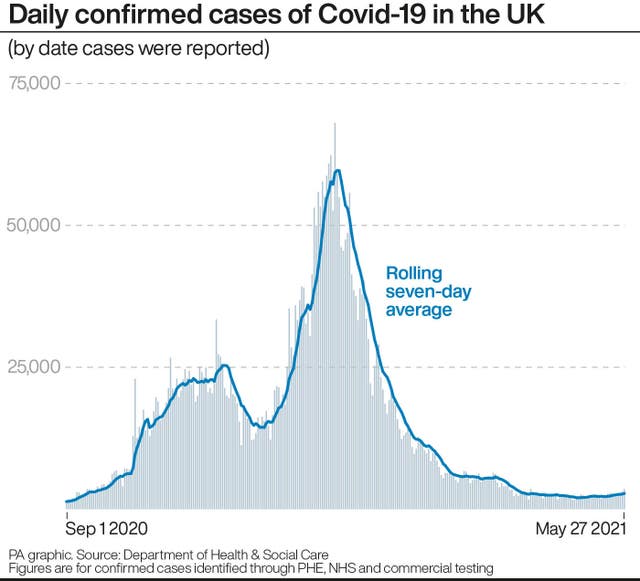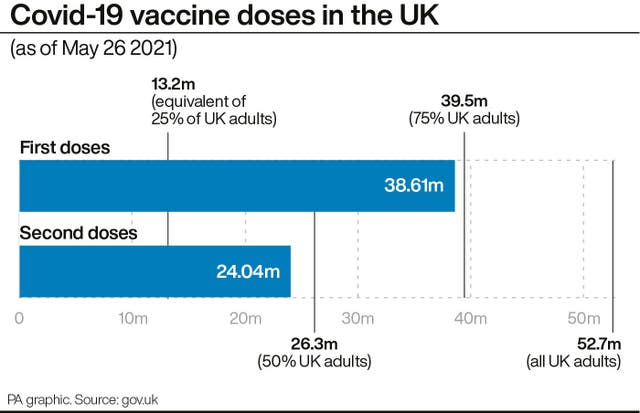
There are “early signs” that coronavirus rates in Bolton, which has seen a surge in cases of the Indian variant, are starting to “cap out”, the Health Secretary has said.
Matt Hancock told a Downing Street briefing on Thursday that if surge testing and vaccinations were effective against the Indian variant in Bolton, then it could be used as a model to prevent local lockdowns.
The Greater Manchester borough, where the Indian variant has been identified, has the highest rate of new Covid-19 cases in England.
There were 1,245 new cases in the seven days to May 23 – the equivalent of 433.0 cases per 100,000 people and up from 343.2 in the seven days to May 16.
Mr Hancock said: “When it comes to Bolton there are some early signs that the increase in rates might be starting to cap out.
“We did see this programme of surge testing plus surge vaccination work in south London.
“But I am really, really watching the Bolton rates very closely.”
His comments came as it emerged that 6,959 cases of the Indian variant of coronavirus had been confirmed in the UK up to May 26, a rise of 3,535 on the previous week.
Public Health England (PHE) said the local areas most affected by the Indian variant of coronavirus continued to be Bolton, Bedford and Blackburn with Darwen, which have seen 1,354, 366 and 361 confirmed cases respectively.

PHE also said that across England 201 people who were confirmed to have the Indian variant had attended A&E up to May 25, resulting in 43 admissions.
Hospital attendances and admissions are predominantly in unvaccinated people, it added.
Mr Hancock told the briefing that of the 49 people in hospital with coronavirus in Bolton, only five had had both doses of vaccine.
He also said that 17,147 vaccinations had been carried out in the last week in Bolton, alongside surge testing.
He added: “We will keep supporting Bolton and we are also watching very carefully other areas because if this package of support works effectively against this variant in Bolton then it is a model of how we can tackle it without having to resort to a local lockdown, which obviously nobody wants to see.”

Dr Jenny Harries, chief executive of the UK Health Security Agency, also told the briefing that many of the outbreaks were centred on “focal points” such as community centres, schools or faith buildings.
She added: “The cases actually do look as though they are starting to plateau out but the spillover into community transmission in local areas is an important one.
“What we are finding in a lot of places, though, is it is not generalised transmission.
“You can still see focal points of outbreaks, whether it is a community centre, whether it is a school or a faith building.
“So it is really important that that local understanding is brought into the picture so we can surge the testing and put in support in those areas.”


Comments: Our rules
We want our comments to be a lively and valuable part of our community - a place where readers can debate and engage with the most important local issues. The ability to comment on our stories is a privilege, not a right, however, and that privilege may be withdrawn if it is abused or misused.
Please report any comments that break our rules.
Read the rules hereLast Updated:
Report this comment Cancel